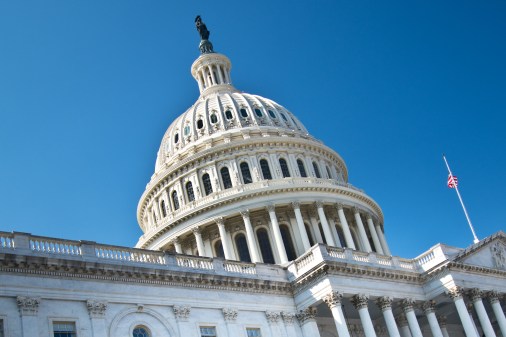The White House is playing the long game on quantum computing, deputy CTO says

U.S. Deputy CTO Michael Kratsios is thrilled by the potential of quantum information science (QIS) in the United States. But he acknowledged Tuesday that it could be some time before any of the White House’s efforts to support quantum development begin to impact the nation.
Kratsios called recent work that the White House has done on the inceptive technology “critically important” and said he hopes to see some perceptible results within the next six years.
“Sometimes, we, especially at the White House, can kind of get caught up in a lot of the day-to-day or the short-term work that needs to be done. And QIS is a very long-dated issue that we need to ensure American leadership on,” he said Tuesday at the U.S. Chamber of Commerce’s AI summit.
The Trump administration placed a greater emphasis on quantum technology this summer with the Office of Science and Technology Policy’s recent creation of a subcommittee within the National Science and Technology Council to help coordinate quantum research efforts across the federal government.
Congress has also followed suit with a slate of legislation to foster public- and private-sector cooperation on QIS research and development.
Quantum technology commands such attention because of its theoretical potential to dramatically increase computing power by entangling particles — allowing the distinct “ones and zeros” of classical computer bits to be superimposed into a single state. The resulting increase in computing power could crack modern cryptography protocols and provide secure communications that can’t be hacked.
Even though current quantum technology has yet to overtake classical computers, Kratsios said the innovations developing in the private sector, combined with increases in federal research, could soon produce perceptible breakthroughs.
“It’s not something that we are going to have tangible, commercialized results in this term,” he said. “But certainly in our second term and going forward, there may be opportunities where you can see a more [formed] product.”
But given QIS’s potential to be a transformational technology, the challenge of fostering it with research conducted by the federal government’s science and technology communities is a top draw for Kratsios.
“Those are the types of problems I like to think about more than any others,” he said. “It’s how we can set the right foundation and the right path forward to ensure that there’s iteration and coordination on these really hard national problems that we need to make sure we lead on.”






